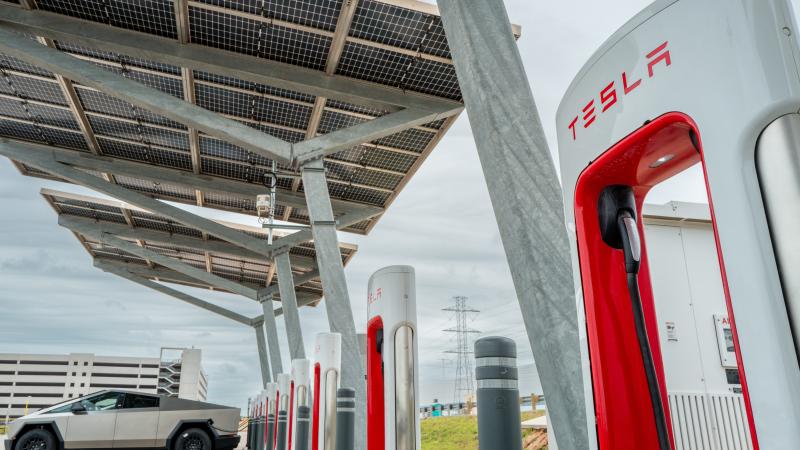Baltimore bridge collapse disrupts coal exports from harbor as producers weigh options
The U.S. Energy Information Administration estimates that exports will account for 19% of the total demand in 2024 and 21% of the demand in 2024. This is up from 14% in 2019.
The collapse of Baltimore’s Francis Scott Key Bridge will shut down a major U.S. shipping port, resulting in a significant disruption of U.S. coal exports. The exports are becoming a larger share of the demand for U.S. coal as domestic demand declines.
The Baltimore port exports 28% of the nation’s total coal exports in 2023, and it is the second largest export hub for coal in the U.S., according to the U.S. Energy Information Administration (EIA).
Annual coal exports from the Port of Baltimore for three of the past five years totalled approximately 20 million short tons, with the exception of 2020, when the pandemic lowered coal demand worldwide. In 2023, the port handled nearly 29 million tons of coal exports.
The exports sailing out of the port account for 4.6% of the 436,649,000 tons of coal the U.S. produced in 2023. With domestic demand for coal declining, the EIA estimates that exports will account for 19% of the total demand in 2024 and 21% of the demand in 2025. This is up from 14% in 2019.
The Port of Baltimore has two terminals that receive, store and load coal onto maritime vessels. According to the EIA, the proximity of the terminals to the Appalachian coal fields in western Pennsylvania and northern West Virginia makes the port attractive to the mines in those areas.
Emily Arthun, CEO of the American Coal Council, told Just The News that there’s a lot of uncertainty in terms of how long the port will be closed and what are the best alternatives for coal producers who use the Baltimore terminals.
With the tragedy still unfolding, most of the discussion has centered around the well being of the people immediately impacted, Arthun said. “Nobody ever wants to see a tragedy like that happening,” Arthun said. “We’ll continue to watch it. There are alternatives, and companies will work through those.”
Hampton Roads
The port in Hampton Roads in Norfolk, Virginia, is the largest export hub for coal. According to the U.S. Coal Exports Coalition, Hampton Roads shipped 35.5 million tons of coal in 2023.
Argus Media reported Wednesday that the Virginia port may have available capacity to handle some of the rerouted shipments of coal from Baltimore. Historic export data going back to 1993 showed that combined shipments from the three terminals at Hampton Roads peaked at 5.48 million tons in April 2012.
With an average of about 3 million tons per month, the 2012 peak suggests that the port could nearly double its coal export capacity to handle rerouted loads.
Much of the coal leaving the Baltimore port, according to the EIA, is thermal coal, also known as steam coal, which is primarily used in electricity generation. In 2023, 19 million tons of thermal coal left the Port of Baltimore. Another 10 million tons of metallurgical coal, which is used in heavy industries like steel production and making polysilicon for solar panels, was shipped from Baltimore in 2023.
Much of the thermal coal that’s exported from Baltimore went to India, where the brick manufacturing industry is a major customer. European countries are also a large customer of U.S. thermal coal, as is Canada. Japan accounts for 28% of the metallurgical coal that shipped out of Baltimore, according to the EIA, followed by China and South Korea.
Imports affected
The port is also an importer of biodiesel feedstocks and edible oils. About 3,000 barrels per day were imported to Baltimore, mostly from Central America and Western Europe.
The Port of Baltimore imported the largest amount of asphalt, a petroleum product that is used in road construction and roofing, of any port in the U.S. In 2023, the port received 4,000 barrels per day of asphalt, almost all of it coming from Canada. About 2,000 barrels per day of urea ammonium nitrate, which is used in fertilizers, were imported through the Port of Baltimore in 2023.
The port also handled 850,000 automobiles in 2023, as well as coffee imports. The Center Square reported Wednesday that the port in Virginia is already seeing marine traffic diverted from Baltimore. A spokesperson for the Port of Virginia told The Center Square that, while nothing is certain, the Hampton Roads port has the capacity to handle the extra traffic, and it isn’t expected to cause delays.
Heritage Foundation Senior Fellow and former Pentagon official Brent Sadler said on the “Just The News, No Noise” television show Tuesday that the collapse of the bridge would have immediate impacts on shipping, which is going to impact people’s daily lives.
The Facts Inside Our Reporter's Notebook
- according to the U.S. Energy Information Administration
- 436,649,000 tons of coal
- the EIA estimates that exports
- tragedy still unfolding
- According to the U.S. Coal Exports Coalition
- Argus Media reported Wednesday
- making polysilicon for solar panels
- biodiesel feedstocks and edible oils
- Center Square reported Wednesday
- Brent Sadler said














